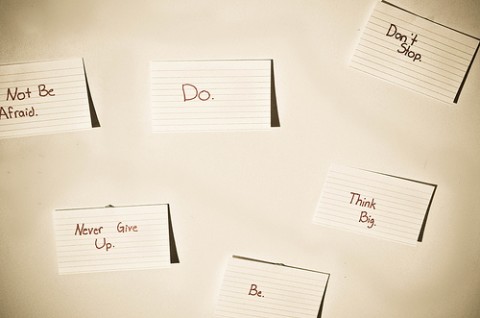Positive Leadership and Sustainability
May 12, 2011 Leave a commentA couple of weeks ago I was an enthusiastic participant in our sister organization Interaction Associate’s most recent offering in their LeaderLens webinar series. The featured presenter was Erik Gregory, a specialist in positive psychology. With roots in the theories and practices of Abraham Maslow, Carl Rogers, and Erich Fromm, positive psychology focuses on the study of human strength and virtue, rather than pathology. This includes looking at what explains resiliency, courage, optimism, and hope, even in the most daunting of circumstances.
Erik was asked by the host to talk more about the application of positive leadership to the life of organizations. This spurred some mention of what he sees as the qualities of a healthy organization, towards which positive leadership aspires:
- Abundant opportunities for feedback based on performance, not personality
- Matching challenges and skills
- Space created for concentration/focus
- Clear and shared organizational goals
I then asked a follow up question about the connection between positive leadership and sustainability, to which Erik responded that the qualities of a healthy organization are also those that encourage more adaptive responses. This resonated with me. Something I’ve come to understand through my own gleanings of positive psychology, mainly through the writings of Jonathan Haidt, is that deep contentment is predicated upon some combination of connection to/intimacy with others, a feeling of purpose that stems from being a part of something larger than one’s self, and generativity. It strikes me that these three elements, if fleshed out in certain ways, do align nicely with sound “ecological” practice.
For example, systems ecology talks about the process of “co-evolution” as being critical to species adaptation/ survival and ultimate thriving through coordinated cooperation once different species have found their respective niches. Leadership that focuses on helping individual elements find a purpose/niche and sense of connection to a larger whole are on their way to creating solid ground for sustainability. The missing link is around “generativity” or what I might more appropriately call “re-generativity.” It is not enough to simply be creative, to churn out “stuff,” but to have a larger sense of how that stuff connects to and coordinates with the larger whole. This is in line with William McDonough’s “cradle to cradle” concept, or Permaculture.
What I find particularly exciting is that this aligns with what my colleague Ashley Welch and I have been positing as the foundation of a leadership model for sustainability that combines focus on personal awareness, collaborative skill, and systems thinking, with a grounding in eco-literacy. My intention is to continue to flesh out this model, and I am very interested to hear readers’ reactions to this link between positivity and sustainability.

No Comments
I like where you are going, can’t wait to see how it evolves! I imagine that this frame makes cross-sector collaboration a MUST!
Articles about leadership and sustainability always require me to figure out if the topic is about ecology and being green or about human systems that won’t collapse from their own design flaws. I think I’ve heard Curtis talk about sustainability and assumed he meant it in the sense of maintaining the momentum of a positive effort. I’m curious if others find that term ambiguous and would appreciate ideas how I might more clearly term the latter concept. Thanks.
Thanks, Mark. I agree that the term sustainability is ambiguous. I most often use the term in association with “being green” and my emerging understanding is that it is hard to separate the long-term momentum of an effort from considerations of its environmental impact. Carol Sanford’s writing (see The Responsible Business) makes this point quite well, stating that there are always five stakeholders in any given “business” venture, and two of these are “community” and “Earth.” As systems become more tightly coupled and we are surrounded by ever greater complexity, we can ill afford to ignore “ecology” even if we are primarily focused on the sustainability of an initiative. Carol and others now use the term “regenerative” to capture an essential characteristic of our thinking and strategy going forward. That does not necessarily help with your question about a more appropriate term for maintaining the momentum of a positive effort. Curious to hear what others have to say about that.
Thanks Curtis. There is so much to read and mentally explore. I suspect perpetuation of either an idea, a ‘solution’, or a system has a lot of similarities and overlap across/between the business realm and ecology. Everything is dynamic and the forces acting on a system – including other systems – need to be such that it self-corrects. All the players and components need to be in alignment or balanced for the whole web to be resilient or re-generative.
Mark, I couldn’t have said it better myself. Everything is indeed dynamic, and the self-correcting mechanism is critical. It seems we’ve set many of our organizations up in a way that ignores feedback loops (they are too large, too top-down, not nimble enough). That’s the power of more participatory and diverse organizations. They become smarter if they have more tentacles and sensors out into the environment. And it takes balancing attention between what’s going on inside and out. I think there is tremendous power in learning from the dynamics of living systems.